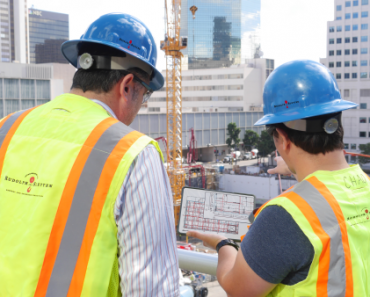
Photo: Encore Personnel
Why do people quit? In an analysis conducted of workers from Facebook, it was discovered that those who stayed were more likely to enjoy their work, feel like their jobs utilized their strengths, and believe they were building skills that would help them later in their careers. It was found that when managers can tailor a job to the worker’s passions they end up more satisfied and committed as employees.
People don’t quit a job, the saying goes — they quit a boss
We’ve heard it so many times that when they started tracking why employees leave Facebook, all bets were on managers. In researching results from an engagement survey it was learned this is not the case.
Of course, people are more likely to quit when they have a horrible boss. But Facebook has spent years working to select and develop great managers. Most people who participated in the survey said they were happy with their boss. The decision to exit was because of the work. They left when their job wasn’t enjoyable, their strengths weren’t being used, and they weren’t growing in their careers.
At Facebook, people don’t quit a boss — they quit a job
If you want to keep your employees it’s time to pay more attention to how you design their work. Most companies design jobs and then slot people into them. We’ve learned that the best managers do the opposite. When they find talented people, they’re open to creating jobs around them.
In working with the People Analytics team, survey data was crunched to predict who would stay or leave in the next six months. In the process, it was found that the people who stayed found their work enjoyable 31% more often, used their strengths 33% more and expressed 37% more confidence that they were gaining the skills and experiences they need to develop their careers. These are the three key ways that managers can customize experiences for their employees.
- Enable your employees to do work they enjoy
- Help employees play to their strengths
- Carve a path for career development that accommodates personal priorities.
Crafting Jobs for Employees instead of Crafting Employees for Jobs
Managers can play a major role in designing motivating, meaningful jobs. Good managers go out of their way to help their employees enjoy their work. Sometimes it even means rotating them out of roles where they’re excelling. For example, a few years ago, one of Facebook’s directors, Cynthia, was leading a large team of HR business partners. Cynthia realized that she wasn’t spending her time doing what she enjoyed most, which was solving problems with her clients.
With her manager’s support, Cynthia hired someone new onto the team, with the long-term vision of asking her to run the team and then moving back to an individual contributor role. Once the new hire was ramped up, and it was clear that she enjoyed the organizational and people management elements of her job, she and Cynthia made the switch. Cynthia is now thriving, solving problems with the clients she loves so much, and her new hire is leading the team. Keeping Cynthia at Facebook was much more important to her manager than keeping her in a particular role.
Learning before the Exit Interview
Too often, managers don’t know enough about what work people enjoy. It always spills out in exit interviews, but why wait until they’re on their way out the door? In the first week on the job, managers should sit down with their new hires and ask them a few things. About their favorite work projects, the moments when they’ve felt most energized at work, the times when they’ve found themselves totally immersed in a state of flow, and the passions they have outside their jobs. Armed with that knowledge, managers can build engaging roles from the start.
People leave jobs, and it’s up to managers to design jobs that are too good to leave. Great bosses protect their employees from toxicity. They also open doors to meaningful tasks and learning opportunities. They enable their people to be energized by their projects, to perform at their best, and to move forward professionally.
When you have a manager who cares about your happiness and your success, your career and your life, you end up with a better job, and it’s hard to imagine working anywhere else.









